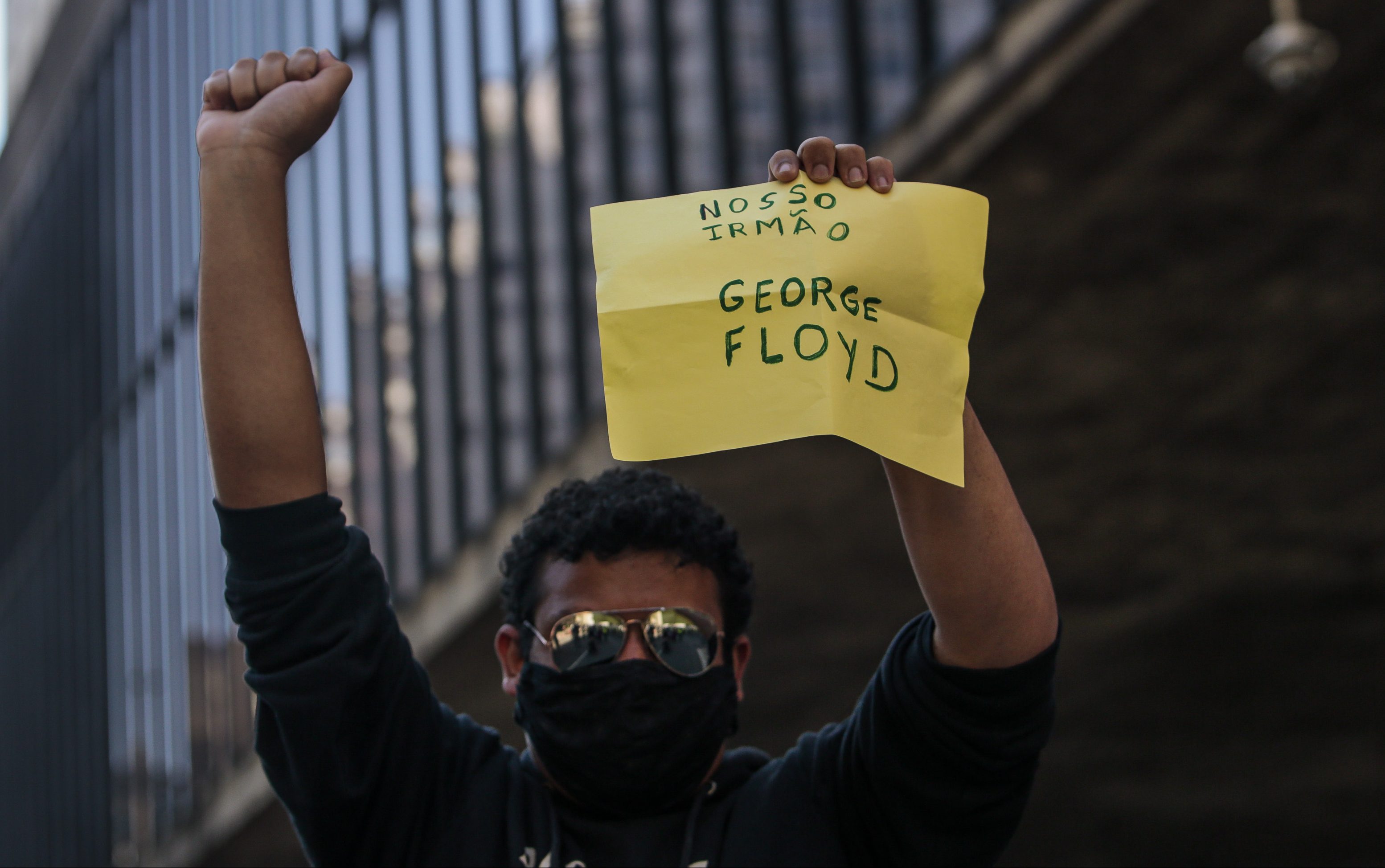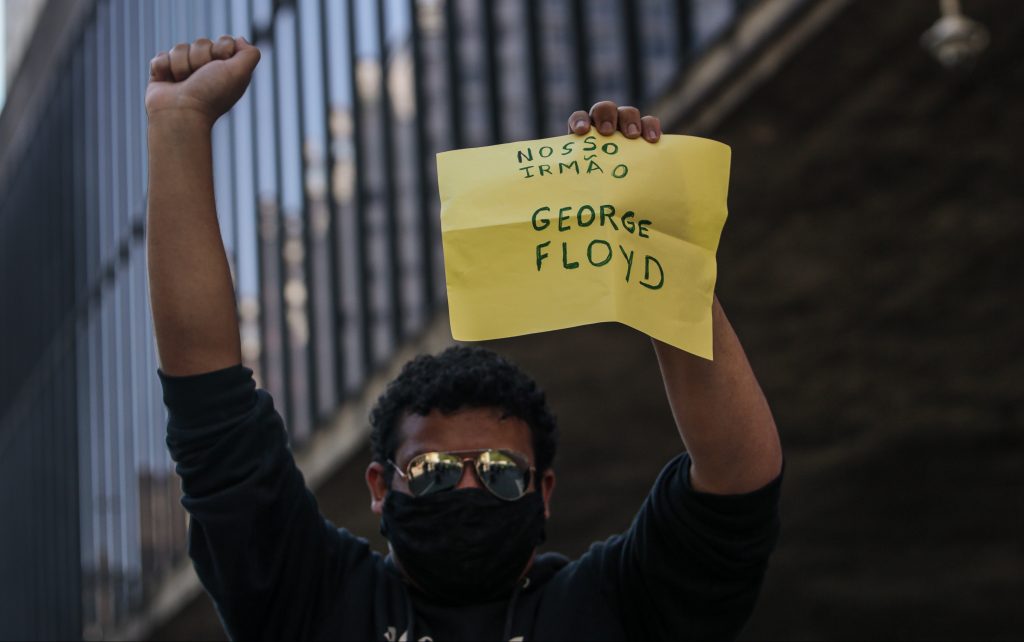As protesters in the U.S. continue fighting against racial injustice in cities everywhere, solidarity marches have formed all over the world. Thousands of people gathered in the U.K., Spain, Australia, and elsewhere this week in an effort to support American efforts while highlighting issues of anti-Blackness and inequality on a global scale.
The protests have resonated with people in South America as well. In Brazil, organizers used demonstrations to speak against police brutality in predominantly Black favelas, and racist policies spurred by the conservative government of President Jair Bolsonaro.
Voice Of America highlighted one demonstration in a square in front of Rio de Janeiro, where protesters chanted in front of the state government palace.
“We are here today because we want to live. We are here today because we are tired of this genocidal state. We are here to say no more, no more!” one activist said.
“I can’t breathe” others shouted in reference to Geroge Floyd, whose murder at the hands of police sparked the outcry. Protesters also gathered in Sao Paulo, where they clashed with police officers who turned violent, shooting rubber bullets and tear gas into the crowd.
As Americas Quarterly notes, both the threat of the coronavirus and police brutality have exposed and emphasized racial tension and anti-Blackness in the country. Bolsonaro has dismissed the threat of COVID-19, urging cities to reopen and doing little to acknowledge the needs of people living in favelas, who are vulnerable to the spread of the disease and reeling from job losses. Already, the death toll in Brazil as a result of the coronavirus is at 31,417.
Meanwhile, according to AQ, police brutality remains another massive problem. Police have killed 606 people in Rio since the beginning of 2020—a number that rose, even as crimes dropped as a result of shelter-in-place measures. Police were responsible for 35% of all killings in Rio de Janeiro state in April, per AQ, and more than three-quarters of those killed in the last decade have been black men. The stats are sobering and show how widely entrenched black police bias is, and how Floyd’s murder is part of a broader problem that has implications across the world.




